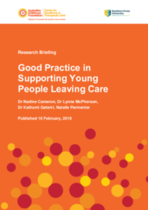Out of school learning scientific workshops: Stimulating institutionalized Adolescents' educational aspirations
This study analyzed how the implementation of the strategy of extending learning time in a group of adolescents living in residential care contributed to promoting their scientific vocations and increasing their academic expectations and their knowledge of these disciplines.

